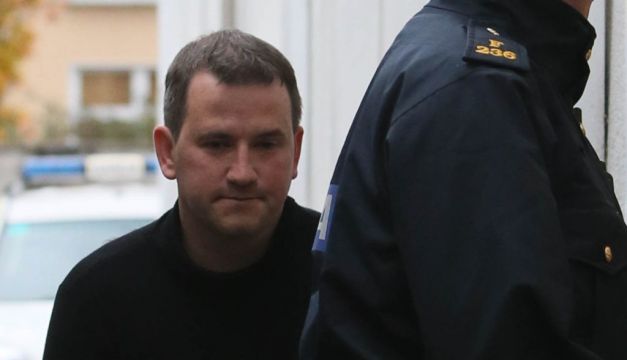Graham Dwyer’s appeal against his 2015 conviction for the murder of childcare worker Elaine O’Hara will be heard by the Supreme Court in January.
The appeal, which was granted earlier this year, centres on the admission of mobile phone call data records at his criminal trial.
The Supreme Court has fixed the hearing of the appeal for January 16th. It has been set down for one day.
The matter was briefly mentioned before Mr Justice Maurice Collins on Tuesday morning. The judge confirmed a timetable for the exchange of legal submissions in the case.
The judge also asked the Director of Public Prosecutions (DPP) and Dwyer's legal team to see if the Irish Human Rights and Equality Commission (IHREC) wish to take part in the hearing.
"The court is not inviting IHREC to get involved," the judge said. "However, if it does wish to participate, it will need to get any submissions to the court and the parties as soon as possible," he added.
Remy Farrell SC, for Dwyer, and Sean Guerin SC, for the DPP, said they did not know if IHREC wished to get involved, but said they would both make inquiries regarding the commission's intentions.
Data gathering
Earlier this year, the Court of Appeal dismissed Dwyer’s conviction appeal on all grounds, including in relation to the admissibility of the call data evidence.
The Court of Appeal agreed with the prosecution that there was enough evidence to support the conviction, even if the disputed call data evidence had been excluded.
The limited call data evidence in dispute was the Court if Appeal said not very significant and was properly admitted into evidence.
There was other evidence to link Dwyer to two phones that formed part of the prosecution case, the appeal court also found, adding there was evidence to the same effect independent of the call data records which was "as powerful and perhaps more compelling".
However, following an application by Dwyer's legal team, the Supreme Court deemed it should consider his appeal.
The court held that "significant issues of general public importance arise" as to the admissibility of the call data evidence retained and accessed under a 2011 Irish law that was struck down by the Court of Justice of the European Union (CJEU) in 2014.
The court said it is also important to properly characterise the illegality involved, considering the data was obtained in compliance with the provisions of the 2011 Communications (Retention of Data) Act, but where the Act itself was subsequently found to be inconsistent with EU law.
The scope and application of legislation governing courts’ directions in conviction appeals will also be considered by the Supreme Court.
Discretion
Dwyer’s lawyers submitted to the Supreme Court that the Court of Appeal misunderstood the CJEU’s decision regarding the 2011 law and incorrectly considered that the trial judge had discretion to admit the phone call records.
They also submitted that the matter will probably require legal questions to be referred to the CJEU.
Dwyer’s application was opposed by the DPP.
Dwyer was convicted of murder by a unanimous jury verdict in March 2015 and sentenced to life in prison.
Ms O’Hara, a 36-year-old childcare worker, was last seen in August 2012 in a public park in Shanganagh, south Dublin.
Some of her remains were found on Killakee mountain just over a year later, and she was identified from dental records.
Prior to his conviction appeal at the Court of Appeal, Dwyer took High Court civil proceedings which successfully challenged the 2011 Irish law under which the mobile phone metadata was retained and accessed by gardaí investigating Ms O’Hara’s death.
The civil proceedings progressed to the Supreme Court and the CJEU, meaning his separate conviction appeal was not heard by the Court of Appeal until late last year.
Dwyer denies murdering Ms O’Hara and also denies that he bought and used a Nokia phone found in Vartry Reservoir in Co Wicklow in 2013.
His trial was told the phone was used to send Ms O’Hara messages, including one about stabbing, culminating in a text dated August 22nd, 2012 – the last day she was seen – to “go down to the shore and wait”.







